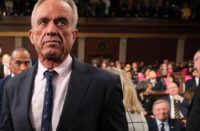TikTok has appealed to the Supreme Court, contending that a new law which could ban the highly popular app in the U.S. is unconstitutional. TikTok’s legal team argues that the ban not only silences the app’s speech, but also infringes on the First Amendment rights of its over 170 million American users. In a separate brief, President-elect Donald Trump voiced his opposition to the ban, requesting time to settle the dispute through political negotiations.
The lawyers presented their initial arguments to the justices, urging them to overturn a previous decision made by a three-judge appeals court panel that supported the ban. While acknowledging the government’s need to safeguard national security, TikTok’s attorneys argued this should not extend to suppressing American citizens’ speech.
The Justice Department, in its filing, defended the law, stating that it is in line with the First Amendment. It further stated that the U.S. government has a compelling interest in thwarting national security threats posed by TikTok being under the control of China, a foreign adversary.
Just last week, the Supreme Court announced that it would hear TikTok’s objection to the ban, which was passed by Congress as part of a foreign aid package earlier this year. The court will deliberate if the law breaches the First Amendment and has set two hours of arguments for January 10.
Trump, who will assume office on January 20, has shown support for TikTok. He attempted to ban the app during his first term, but reversed his stance during his campaign. The president-elect has promised to “rescue” the app, confessing his fondness for it.
The president-elect has asked the Supreme Court to delay the law’s implementation to give his administration the opportunity to pursue a diplomatic resolution that could avert a nationwide shutdown of TikTok. He argues that the proposed law infringes on his ability to manage foreign policy and pursue a resolution that protects both national security and the First Amendment rights of millions of Americans who use the app.
The law was drafted to restrict TikTok access in the U.S. due to concerns about its links to China. The app’s parent company, Beijing-based ByteDance, has come under scrutiny from intelligence agencies, lawmakers, and members of both political parties who fear that the app could provide the Chinese government with access to data from approximately 170 million American TikTok users. They also express concern that TikTok could serve as a tool for the Chinese government to covertly manipulate content and influence public dialogue.
The case, which is attracting attention from Congress members, civil liberties groups, former national security officials, and TikTok users, will be deliberated in the final days of the Biden administration. The ruling could have far-reaching implications for TikTok and its massive user base, particularly in the United States.





